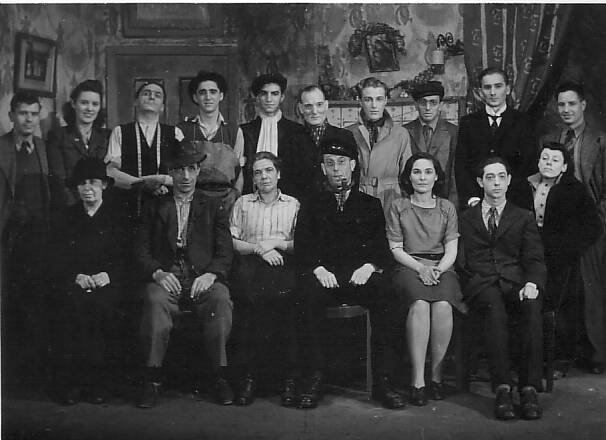|
Ted Willis |

The picture above is of Lord Willis. I never knew Lord Willis. But I did know Ted.
I first met him when I was still a teenager, studying for my Higher Schools Certificate at the Quintin School - at that time still known as the Polytechnic Secondary School, part of the Regent Street Polytechnic - based in a small Victorian school building in Peter Street, Soho, in the West End of London. The school had been evacuated to Minehead in north Somerset during the War. This was immediately after the War and this returned section of Regent Street Polytechnic could no longer be housed in the main Regent Street building.
At that time my interests were divided between my daytime studies and my leisure time activities that were both political and heavily left-wing oriented. I had never stopped believing that I would ultimately find my star in the firmament of journalism. To that end I had contacted Glyn Jones, a Fleet Street journalist that I had met when an evacuee in Llanelli, South Wales. He told me that I had, effectively two options. I could enter journalism via some extremely mundane work he would be able to find for me on a London newspaper, with the hope that I might eventually develop into a reporter; by no means a certain outcome. Or I could pursue my studies via a university degree, but that was a much less certain route into journalism, as the competition would be fierce. While making up my mind he suggested introducing me to the Editor of Challenge, the communist youth newspaper, and I might get some useful experience that way.
I decided on the second route and, in due course, was introduced to the Challenge editor - Ted Willis. He turned me over to a sub-editor whose name I have been trying to recall for decades . . . unsuccessfully. The name Matthews constantly pops into my head, but despite the vast resources of the internet these days, I have not managed to get any closer to discovery.
It was a magical time for me. They actually gave me a Press Card, because Challenge was officially registered as a newspaper, and set me some assignments in their Arts section: producing reviews of books and films. As an avid film buff anyway, I was delighted to be able to use the privilege of reviewer to attend press releases of movies in many of the West End cinemas. Furthermore, by the crafty use of the cinema toilets, I could usually delay my departure from the mid-morning press show, until the start of the first normal performance, usually at mid-day.
Anyway, we seem to have wandered some way from Lord Willis. I saw him occasionally at the Challenge office, but never spoke to him again there.
I did however meet him subsequently, and introduced myself to him, at the Unity Theatre (q.v.) where he learned much of his stagecraft, and where I attended many wonderful productions of plays by Clifford Odets, Sean O'Casey, Jean Paul Sartre and others in the late 1940s and early 1950s, with many subsequent cinema and TV luminaries among the casts, including Alfie Bass, Bill Rowbotham (later Owen), and David Kossof. This is described elsewhere in these pages. But below I append a picture of the cast of O'Casey's Juno and the Paycock that I saw at the Unity in 1945.
